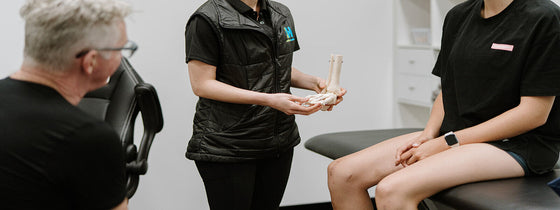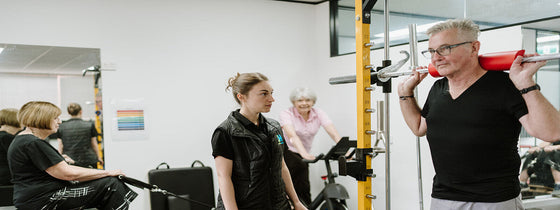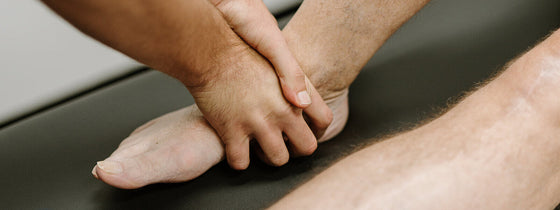Good food and fluid intake can be your biggest asset when it comes to performing at your best. Nutrition is vital to ensure you get the most out of your body – this means fuelling properly so you have the energy to last the game, recovering properly so your body can heal, and maintaining hydration for concentration, muscle coordination, and body temperature regulation.
Ready for some quick tips from an Accredited Practising Dietitian? Emily Drew is here to share some evidence-based tips for budding athletes!
Hydration
As with all nutritional advice – everyone is different. Sweat rates can vary from one individual to another and we have different fluid requirements at different ages in our lives. Dehydration can impair your concentration and muscle coordination, increase your heart rate, and exacerbate fatigue. Over-hydration can also be problematic and cause stomach upset, headaches, and in severe cases, be dangerous to your health. A good hydration goal is for your urine to be pale-yellow in colour (and not smelly) before your game - then you are well hydrated and ready to go.
Pre-game
It is important to be hydrated before game day to maximise your performance. Don’t wait until the day of the tournament to hydrate – if you start the day dehydrated the body will take a while to rehydrate and this may affect your performance. Ensuring you drink plenty of fluids leading up to game day will put you in great shape. Water is generally your best choice for good hydration pre-game. On the night before a game, make sure you have a healthy meal containing some protein and carbohydrates (Pasta bolognaise, meat with potato and vegetables, rice with chicken and vegetables) to provide your body with the fuel it needs.
Game day
Breakfast is important to top up your fuel stores before your match or event. Choose foods containing carbohydrates, protein, and fluid such as cereal and milk, toast with eggs and a glass of milk, or a protein fruit smoothie. An hour or two before the game, top up your energy stores with an easy-to-digest carbohydrate snack such as pikelets, jam or honey sandwich, fruit, or a milky drink. During a game, make the most of bench time, half time, time outs, and warm up to take a drink from your water bottle. Sipping water is the best way to hydrate, rather than drinking large amounts in one go. Don’t forget on tournament day to keep up your fluid in between games. If you are playing in a tournament, or your event is longer than 90 minutes, top up your fuel stores with more easy-to-digest carbohydrate snacks such as lollies, sports drinks, energy balls, jam/honey sandwiches.
Post-game
After the game it is important to continue to drink water or have some protein and carbohydrates to repair muscle and replace the energy you just spent. Foods such as a milky drinks or meat and vegetable sandwich are great options. No need for specialty foods or supplements - all hydration and nutrition needs for pre, during and post games can generally be met through regular foods and drinks.
What about sports drinks?
Sports drinks contain electrolytes that help absorb fluid into the body more readily and
carbohydrates for energy. During prolonged periods of activity, such as a busy tournament, marathon/triathlon or in intense heat – a sports drink can help to replace fluids and electrolytes lost in excessive or prolonged sweating, and top up your energy levels with extra carbohydrates. They are not recommended as a drink outside of sports as they are full of refined carbohydrates and not a great choice for teeth or our health in general. Outside of sport, we get electrolytes and quality carbohydrates from a healthy balanced diet.
Do you feel you want more individualised information for you/ your family and your sport? Booking an appointment with Dietitian Emily would be a great step in learning how to perform OPTIMALLY and reduce your injury risks this season. Bookings available by calling 9431 5955 or you can book via the Client Portal on website.

If you're experiencing back or neck pain with neurological signs and symptoms, a thorough neurological examination is crucial for accurate assessment and effective treatment. In this Optimal Tip learn more about what we mean by completing a neurological exam!

Squats, deadlifts, and calf raises are key movement patterns that should be part of every strength and conditioning program—regardless of age and activity level. These functional movements support joint health, improve posture and balance, and reduce the risk of injury while building strength where it matters most.

A ganglion cyst is a fluid-filled swelling that typically forms over a joint or tendon sheath, causing discomfort and pain, especially when pressing against nerves or joints. Proper assessment and treatment, including physiotherapy, are essential for managing symptoms and improving function in the presence of a ganglion in your hand, foot, or wrist.